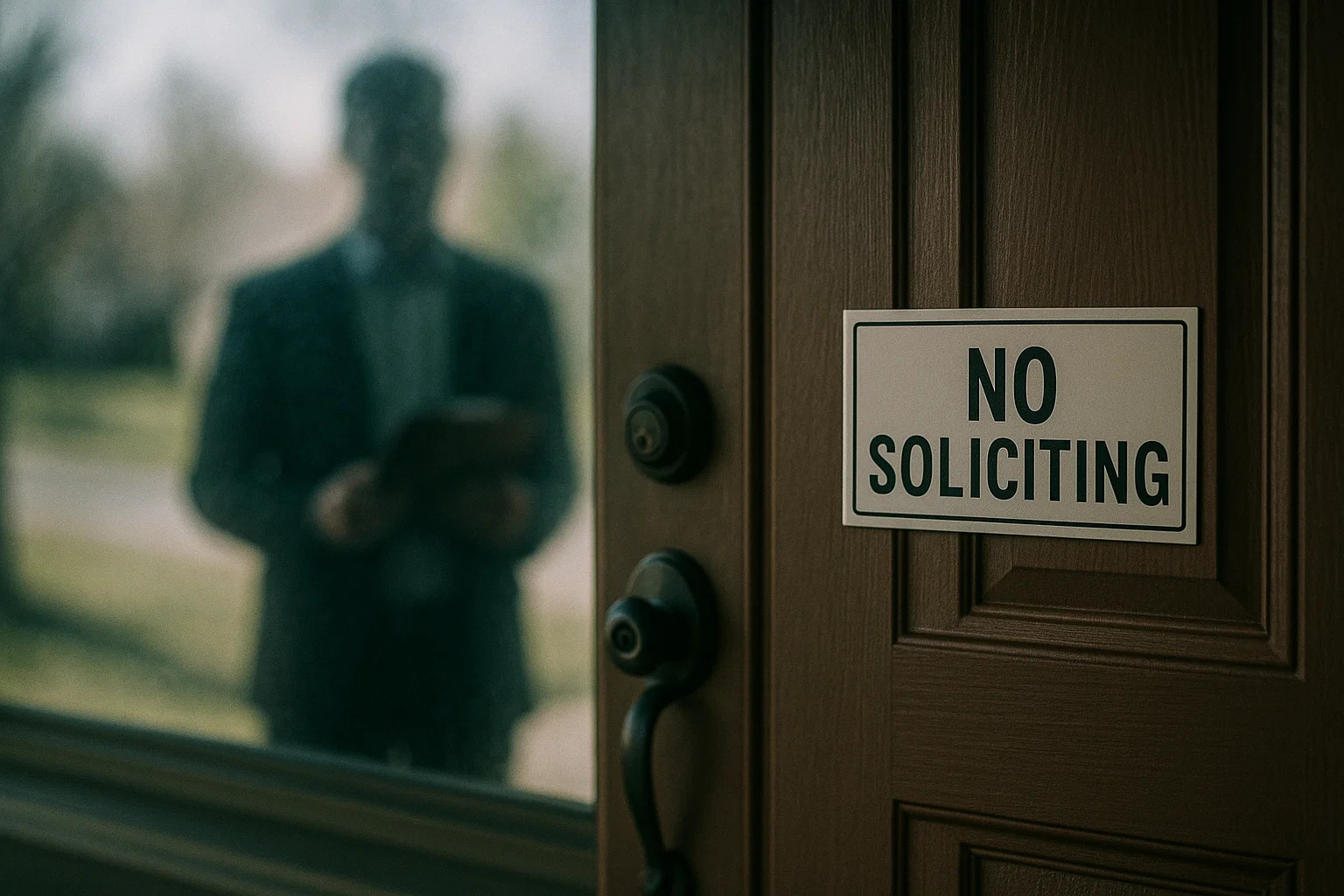When Free Crosses the Line
 Trust is the currency of any transaction, whether it’s a handshake with a neighbor or signing up for a new service. When that trust is broken, especially in a way that compromises personal privacy, it’s not just an inconvenience—it’s an ethical breach with real-world consequences.
Trust is the currency of any transaction, whether it’s a handshake with a neighbor or signing up for a new service. When that trust is broken, especially in a way that compromises personal privacy, it’s not just an inconvenience—it’s an ethical breach with real-world consequences.
That’s exactly what happened when a local internet provider rep came knocking. Despite clear no-soliciting signs, the salesman pressed his case: “free installation” now, potential savings later. The homeowner repeatedly said no, asked for email information only, and withheld sensitive information like their Social Security number. On the surface, that should’ve been the end of it.
Instead, the homeowner received an email minutes later showing they had been enrolled in the program anyway—with an electronic consent form “signed” by the rep who simply dotted the signature box to push it through. In other words, forgery.
This isn’t just a customer service hiccup. It’s an ethical disaster.
Why This Matters Beyond One Doorstep
First, let’s be clear: forging a customer’s consent to run a credit check is not a small offense. It’s not “overreacting” to call it out. A credit check is a financial probe into someone’s private data. Accessing that without consent violates both ethical boundaries and potentially legal ones.
Ethically, it’s a betrayal of basic honesty. If a salesperson can’t secure business without lying, they shouldn’t be in business. Practically, it undermines the very idea of informed consent. If your signature—digital or otherwise—can be faked to push through a sale, where does that leave consumer protection?
This is bigger than one homeowner’s frustration. It’s about the erosion of trust in industries that already depend on mountains of fine print, aggressive sales tactics, and opaque billing practices.
The Common Sense Red Flags
From a practical standpoint, a few things stood out immediately:
- Asking for SSN digits for a "free" installation. A true no-cost setup doesn’t require a credit check. The ask itself was a signal something wasn’t right.
- Reluctance to provide written info. If a program can’t be explained in writing, it’s usually because the company doesn’t want the promises on record.
- Pushing past a “no.” Ethical sales are built on respecting boundaries. Ignoring a refusal and pressuring further is manipulation, not persuasion.
These are the kinds of patterns we all need to spot early, because once a system has your financial data, it’s hard to claw it back.
How an Ethical Company Should Respond
The internet provider now has a choice. If they treat this as an isolated annoyance, they’ll reinforce the culture that enabled it. But if they act decisively, they can turn the breach into an opportunity to reaffirm their integrity.
At minimum, ethical common sense requires:
- Immediate reversal of any enrollment or credit checks. The homeowner’s consent was not given; the data should be purged.
- A written apology. Not a canned PR statement, but a direct acknowledgment that forgery occurred.
- Accountability for the rep. Forging signatures is grounds for termination. Keeping such an employee signals to the public that deceit is tolerable if it drives sales.
- Process review. How easy was it for one salesperson to “dot” a box and force through a contract? If the system enables fraud that easily, the company shares responsibility.
Practical Steps for Consumers
While the company works on its own accountability, consumers can take their own measures:
- Document everything. Save emails, write down dates, names, and details of conversations.
- Follow up in writing. Phone calls can vanish into the ether. A paper trail—especially certified mail—forces a response.
- Consider reporting. Agencies like the FTC or state attorney general’s office exist for situations where companies mishandle personal data or run deceptive practices.
- Monitor your credit. If there’s even a chance your SSN was accessed, watching for new inquiries or accounts is practical self-defense.
The Bottom Line
No, this isn’t an overreaction. It’s the exact reaction we need when companies—or their representatives—decide that honesty is optional. A forged signature is not a harmless shortcut. It’s theft of consent, and once normalized, it spreads.
Ethics and practical common sense align here: refuse to let it slide. Hold the company accountable, expect written acknowledgment, and demand systems that protect customers instead of exploiting them.
Because if we accept this kind of behavior as “just how sales work,” we end up normalizing deceit in one of the few places we should expect clarity—our own front doors.